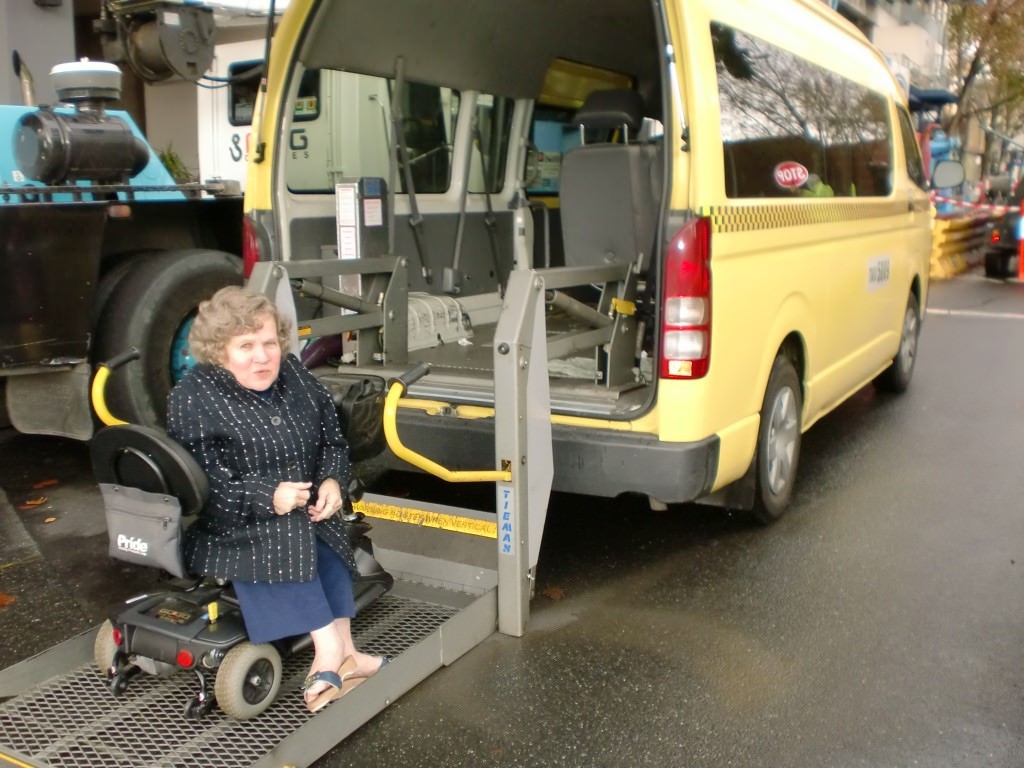
In my role as an advocate for a Center for Independent Living, I monitored county compliance on the Americans with Disabilities Act (ADA). In January 2012, I spotted a public transit issue. Not only was it an ADA violation, but it also violated the principle “nothing about us without us.”
County staff was seeking Board of County Commission (BOCC) approval of an ADA Paratransit Plan—door-to-door service for those unable to ride fixed-route buses—without giving adequate notice or opportunity for the public participation required by the ADA.
Want to subscribe to receive blog updates sign up today!
Specifically staff had failed to reach out to paratransit riders or people with disabilities and groups representing them in the community. The public notice of the proposed plan had been posted in a newspaper, but not the newspaper read by the Radio Reading Service for blind or visually-impaired listeners. And no notices were posted on buses or distributed to organizations whose clients used county transit services.
I recruited paratransit riders to join me in making public comments to ask the BOCC to postpone approval of the paratransit plan until public participation was provided. After five years advocating at the BOCC in support of public transit funding, the entire BOCC knew my name. The BOCC Chair declared me trustworthy and responded favorably to our comments.
Our advocacy achieved the desired result when the BOCC declined to adopt the ADA Paratransit Plan and directed staff to come back after working out the notice and public participation issues with me. Although county staff also knew me, they weren’t so appreciative. The staff member who had prepared and presented the ADA Paratransit Plan to the BOCC cried when the plan was not adopted. Still, she had no choice but to work with me.
After following my lead on giving adequate notice to riders and meaningful outreach to disabled organizations, public participation on the plan was scheduled in March 2012. Even so, county staff still saw this as “Angela’s” meeting that would only need a small conference room. When 30 people turned up, staff had to open the county commission chamber at the last minute.
County staff were astounded that 15 people and disability organizations made public comments—nine riders, five disability professionals, and one employer—giving meaningful input on the plan. Staff listened to the public input and responded with many improvements to the plan relating to eligibility recertification, the trip pick-up window, consideration of weather conditions that affect a person’s ability to get to a bus stop, and the appeal process. Finally, I was ready to support the revised ADA Paratransit Plan when staff resubmitted it to the BOCC four months later.
Another recurring issue was the county Metropolitan Planning Organization’s scheduling of public participation transit workshops on evening and weekend hours when there was no transit service. We dealt with this issue at a Florida Transportation Disadvantaged (TD) Local Coordinating Board (LCB) meeting. The motion to schedule public workshops at times when TD riders could get there either by providing after-hours transit or scheduling daytime meetings passed unanimously.
This post is a condensed excerpt from chapter 18 in book three of my dwarfism memoir trilogy, “ALWAYS AN ADVOCATE: Champions of Change for People with Dwarfism and Disabilities,” https://angelamuirvanetten.com/always-an-advocate/.

2 replies on “Public Participation ADA Violation”
I remember that issue! You always fight such a good fight. We’re glad to have you in our corner!
Thank you, Angela! Your advocacy and hard work have made a difference for the better in so many people’s lives!!!